|
If you haven’t heard by now, yesterday was Valentine’s Day—a day that solicits cheers and jeers from so many. Our culture reminds us that Valentine’s Day is the day to show love to your friends and family. If you walked into any retail store, I’m sure you were bombarded with Valentine’s Day sales, candies, cards, flowers, etc. all reminding us that love (and several shades of red) is supposed to be celebrated on this particular day. I’m not here to give you the history of Valentine’s Day or the particular saint (or non-saint) it may be based on. If you want to read more about the Catholic history of this celebration, feel free to click here. I’m here to remind you of something that I feel very strongly about: love is meant to be shown every day, to be celebrated every day, not just one day a year. Oftentimes the “valentines” that are exchanged contain the term “Will you be mine?” We should remember that no one is ever alone on Valentine’s Day. Everyone has a valentine. Jesus Christ is the single most important valentine that we have and I guarantee you, he doesn’t get many cards (perhaps people just think he’s allergic to chocolate). We should take comfort in the fact, however, that we are taking time out of our usually hectic lives to acknowledge that we all share love with someone. My only piece of advice is to not let it end when the chocolates are gone, or after the cards are exchanged. We should continue to express the affection we have to the people in our lives who are always there for us, who know us best, and oftentimes feel the same way about us, every day. Let us not also forget that Jesus shows us his love everyday as well and follow his example. As we celebrate love on Valentine’s Day, I also hope that you take the time to express some love this week with concrete actions. Call your parents, your grandparents, your husband or wife, catch up with friends you haven’t spoken to in a long time - reach out and remind them that you love them today and every day. **This post was originally published on 2/13/2013.
0 Comments
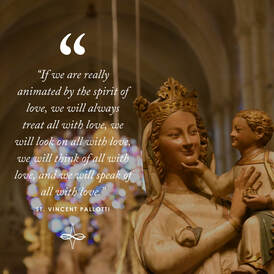 What motivates us to do what we do? If it is love, then we are called to “will the good of another” (St. Thomas Aquinas quoted in the Catechism of the Catholic Church, 1766). The object of our love is not ourselves or our self-interest. It is God and neighbor. St. Vincent Pallotti universalizes love in this way: “If we are really animated by the spirit of love, we will always treat all with love, we will look on all with love, we will think of all with love, and we will speak of all with love” (OOCC III, 338). This type of love requires sacrifice and generosity. Of course, the greatest act of love was the sacrifice of Christ on the Cross. We see generosity and sacrifice in the Blessed Virgin Mary saying “yes” to the Angel Gabriel and St. Joseph setting aside what he wanted to do and always doing the will of God. Sacrificing ourselves for the other, thinking not of self, but the other, is not a typical way of behaving. We seem to be able to do it on a small scale with those closest to us, which is the place to start. Bit by bit, through self-sacrifice, a generosity of spirit grows, love grows. Does this happen on its own? No, the Holy Spirit is moving in and through each of us. The grace of God gives us the ability to sacrifice and be generous, moving us toward universal love. May the charity of Christ urge us on!
Yesterday we celebrated the Memorial of Our Lady of the Rosary--a Feast Day that reminds of the important role that the rosary plays in our daily lives. It is a form of prayer that we seek when we are struggling and need the comforting embrace of a mother. It is a form of prayer that is joyful, celebrating our successes with Christ through Mary.
Devotions to Mary have always been an important aspect of my faith. In particular, the rosary has helped me through many tough times in my life and given me the strength to continue forming my life to Christ, but its importance was reinforced in the first few months of my college career when I joined the Knights of Columbus. Upon entering the Order, Knights are given a rosary as a symbol of our devotion to Mary and a reality of our reliance on her example and her intercession with God But why should we say the rosary? Saint John Paul II gives a clear picture of the rosary’s importance: “The Rosary mystically transports us to Mary's side as she is busy watching over the human growth of Christ in the home of Nazareth. This enables her to train us and to mold us with the same care, until Christ is “fully formed” in us.” When we pray the rosary, many of us are seeking the warm embrace of a mother, someone who can reassure us in our fears and give us the strength to live out each day for Christ. Mary is our mother in every sense of that word. Christ, moments from death, says to Mary, “Behold, your son,” and to the disciple whom he loved, “Behold, your mother.” With these words Christ gives Mary to all of us as our mother, the Mother of the Church, and with these words we are formed by her just as Christ was. The rosary does not pull our attention away from Christ, but rather joins us with him through our love of Mary. John Paul II tells us in Rosarium Virginis Mariae, “Never as in the Rosary do the life of Jesus and that of Mary appear so deeply joined. Mary lives only in Christ and for Christ!” The rosary allows us to participate in that union and calls us to share in the life of Christ through our relationship with his Mother. Each time we pray the rosary we focus on the Joyful, Sorrowful, Glorious, or Luminous mysteries. These are not only drawing us closer to Mary, but to the life of Christ as each set of mysteries is grounded in the Gospel. When we pray the rosary we do not just repeat prayers over and over again, but rather we are given the opportunity to live out a different aspect of the life of Christ with each decade. Repetition is an important aspect of the rosary, but is it actually repetition? Archbishop Fulton Sheen in his book “The World’s First Love” tells us that it is not repetition for each time we say the rosary, “we are saying to God, the Trinity, to the Incarnate Saviour, to the Blessed Mother: "I love you, I love you, I love you." Each time it means something different, because, at each decade, our mind is moving to a new demonstration of the Saviour's love.” Who better to remind us of the Christ’s love than Mary, the Mother of God, our mother, who raised Jesus, formed him, and followed him. Who better to emulate than Mary, who watched her son suffer and die on the cross for our salvation. Each time we say the rosary we are embraced by our mother, we are renewed in our faith, and we are reminded of God’s love. “Remember, O most gracious Virgin Mary, that never was it known that anyone who fled to thy protection, implored thy help, or sought thine intercession was left unaided. Inspired by this confidence, I fly unto thee, O Virgin of virgins, my mother; to thee do I come, before thee I stand, sinful and sorrowful. O Mother of the Word Incarnate, despise not my petitions, but in thy mercy hear and answer me. Amen.” *This post was originally published on October 7, 2014. Nicholas Shields is a young professional from Washington, D.C. Jesus gives us one of his greatest challenges in the Gospel for today. He says, “Stop judging and you will not be judged. Stop condemning and you will not be condemned. Forgive and you will be forgiven…For the measure with which you measure will in return be measured out to you.” (Lk. 6:27-28) While the last paragraph of this passage is the part that is most often quoted, the first two-thirds are just as challenging. In his words leading up to the well-known “judge not lest ye be judged,” the Lord calls us to be better than just taking the easy way out. Speaking to his disciples, Jesus said, “To you who hear I say, love your enemies, do good to those who hate you, bless those who curse you, pray for those who mistreat you. To the person who strikes you on one cheek, offer the other one as well, and from the person who takes your cloak, do not withhold even your tunic. Give to everyone who asks of you, and from the one who takes what is yours do not demand it back.” The key word is everyone.
He says, “For if you love those who love you, what credit is that to you? Even sinners love those who love them.” He reminds us that the easy way out won’t get us very far in the eyes of God. So you do good to those who do good to you? Even sinners do that. Think, Jesus constantly argued with the Pharisees who were quick to judge others but not themselves: “Why do your disciples pick grain on the sabbath? Why do you dine with sinners and tax collectors?” (emphasis added). Jesus’ response is this, “But rather, love your enemies and do good to them… then your reward will be great and you will be children of the Most High, for he himself is kind to the ungrateful and the wicked. Be merciful, just as also your Father is merciful.” To be merciful, to love even those who we find hardest to love, is to participate fully in the life of God who is merciful. We see Jesus’ command to not judge or condemn taken to extremes on either side. On the one hand, we can take this command to mean that we cannot correct or rebuke someone for their actions, even actions that are harmful to themselves or others. “Jesus said not to judge,” is often used as an excuse for the relativism that permeates our society. We can’t judge what someone else believes. In fact, to even suggest objective truth could be seen as condemnatory or judgmental and, therefore, we can’t do that. On the other hand, some will merely ignore Jesus’ words and condemn others as sinners, which we all are. If we ignore Jesus’ words, we risk putting ourselves on a pedestal, seeing ourselves as the good people and those other sinners as unclean and unworthy of my love and God’s love. In fact, Jesus is calling us to the middle ground. We believe in truth and that people can, in fact, be wrong. With patience and charity, we can judge an action to be right or wrong, but never in condemnation of the person—that judgement is God’s alone. Indeed, it is that understanding that God alone can judge a person’s heart that we must remember at all times, in all of our relationships and interactions. When we love others, friends and enemies, when we save condemnation and judgement of one’s heart for him alone who can do so (the Almighty God), then “For the measure with which you measure will in return be measured out to you.” Lord, Jesus Christ son of God, have mercy on me, a sinner. To learn more about our call to mercy, please click here. Shifts in routines have a way of forcing us to reevaluate the purpose of our lives. When shaken from complacency, we start to ask questions of greater value: how do I spend my time, and with whom? What brought me joy today? What’s the purpose of my life? Where do I find meaning? As we continue to press onward in the midst of this global pandemic, I find myself asking these questions again and again. After prayer and reflection, I’ve come to realize I’ve worn many “masks,” and it took wearing a physical one to reveal them to myself. Prior to COVID-19, my work, my independence, my family, my social life, my community, my outings—these things and others gave my life meaning. They were my security blankets that helped me feel secure and often distracted me from some of life’s greater questions. None of these things are bad in themselves. All are good and fundamentally human. But, where our humanity often fails is in how much importance we give these temporal things. Does our occupation or social status or friend count lull us into a false sense of security or complacency? Do they make us feel powerful, independent, successful? Do they, in and of themselves, give our lives meaning? When I felt stressed or bored or unhappy prior to COVID-19, I could get a change of scenery at a museum or coffee shop. I could go to a store and buy something small to make my house more beautiful. I could go on a date with my husband or spend time with a friend. Many of these things were taken for granted, but as they become harder to accomplish or require much more intentionality and legwork, I’ve had to become creative in self-care and honest about where I find meaning in my life. First of all, I’ve had to sit longer with my feelings and allow myself to deeply feel my emotions. At various points throughout the pandemic, I’ve felt sad, anxious, frustrated, or lonely. Recognizing these feelings as legitimate and naming them has enabled me to better process what I’m going through and revealed to me what’s most meaningful. Many distractions have quieted down and enabled me to reflect on my life and mission. Who am I when I am not bouncing around from one mom group to the next? Who am I when I cannot organize and host events or gatherings? Who am I when I can rarely go to a store or go to get groceries? I am many things: a wife, a mother, a daughter, a writer, a sister, a friend. But most importantly, I am a Christian—a beloved daughter of God. When so many good and beautiful things that I relied on for purpose are rendered skeletons, I’ve had to relearn to rest in this true identity. I’ve found that God is asking me to place the purpose and meaning of my life not in these temporal things, but in his hands alone. I am not worthy of his salvation because of my degrees, my writing, my work, my friends, my connections, or my home. I am worthy of his salvation because he made me. Because I am his. Because he looked at me and said, “It is good” (cf Gen 1:31). What is much harder than the initial shock of any given change is often not the change itself, but the continued life thereafter. I find it much more difficult to persevere. Pressing on in what can seem endless and mundane seems overwhelming. For many of us, getting out of bed may be the biggest achievement of the day. I have to take my life and my new reality day by day. And I’ve noticed how this correlates to the journey of sanctity. A moment of conversion or change is just the beginning—a sustained life of faith, lived and chosen in each moment of each day, is the stuff of saints. It is the quiet, hidden path—the one Mary lived so long and so well—one of seeming insignificance or ordinariness that ultimately can mean everything. This time of uncertainty, lived with charity and faith, can be our foundation for holiness. As human beings, we long to be fully known and loved. These are our greatest desires. But we walk along with invisible masks that obscure our dignity, often preferring wearing them than to being seen face to face. We try to justify God’s love, or earn it, or excuse it, or dismiss it. What I’m learning more deeply as a result of this pandemic is that I am loved in spite of all these things. I am loved regardless of who I know, how full my schedule is, what I own, how successful I am. As I stay home yet another day, sustaining the life of a small but beautiful family and cultivating a domestic church, I am reminded that this--this is worthy and sanctifying. My Mount Tabor can be my own home. And I can be transfigured. During this time of wearing a physical mask to keep ourselves and others safe, I invite you to reflect on the invisible masks that you may be hiding behind. Where do you find meaning? What makes you feel secure? Where do you turn in times of hardship or suffering? During this season, may you have the courage to allow yourself to meet Christ’s gaze face-to-face. If you enjoyed this post, we invite you to read “New Normal: Adapting to Life During COVID-19 and The Grace to Suffer Well: Persevering During COVID-19” “Through your infinite mercy… destroy in me all my cruelty; give me your mercy, transform me in your mercy, and let my life be a life only of works of corporal and spiritual mercy for the benefit of all.” - St. Vincent Pallotti If one goes online right now, he or she will find many uplifting posts on social media. But all too often, there are also cruel attacks aimed at one another—even by practicing Catholics. Yet, as St. Vincent Pallotti reflected on and experienced, God is infinite love and mercy. In and through our experience of God’s mercy and love, we are challenged to live both out in our interactions with others both physically and online. As St. Vincent Pallotti attested to, the Corporal and Spiritual Works of Mercy are fundamental to our growth and spiritual lives. Everyone knows there is suffering of all sorts in our world. Why would a Christian want to add intentionally to that suffering? Sometimes, this can be done unintentionally through sins of omission. As we say at Mass during the Confiteor, we ask forgiveness for “what I have done and in what I have failed to do.” Doing the Corporal and Spiritual Works of Mercy can aid us in examining our consciences. We can then seek forgiveness and mercy from God, especially in the frequent celebration of the Sacrament of Penance which helps us experience more deeply the infinite mercy and love of God. From there, we go forth witnessing to others what we ourselves have experienced. Pope Francis reminds us: “Mercy towards a human life in a state of need is the true face of love” (Angelus, July 14, 2019). Instead of causing suffering, we are called to compassion—to suffer with another. This is not easy, but practicing the Corporal and Spiritual Works of Mercy will assist us in learning and living a compassionate, merciful, and loving way of life in Christ. May we pray with St. Vincent Pallotti to be transformed in God’s mercy for the benefit of all. May the charity of Christ urge us on!
The principle of God’s Infinite Love is consoling in prayer, encouraging in our personal darkness, and a bright light for preaching and teaching. But when it comes to pastoral care, this Infinite Love can feel overwhelming, idealistic, and impossible. On a more personal level, Infinite Love care can lead to feelings of guilt at not having done enough and shame at not being enough. Consequently, the idea of accompaniment can quickly appear to be wishful thinking. How am I to walk with people when I am just one person with one sunrise and one sunset each day? There are dozens or hundreds of people who need care in my community, but I can barely finish my homily, or you can barely get the kids to school on time. The problem is with two false thoughts. First, we are not God. We are not the source of Infinite Love, and we shall never be. Second, accompaniment does not mean that I have to walk with each person all day. This is impossible. Honestly, many good Catholics have difficulty letting go of control. The worst example of this is the savior complex. We are not the saviors, Jesus is. The reality is that the Lord God is the principal Accompanier, not us! And, out of His goodness, He has chosen myriads of intermediate accompaniers. In other words, and hear me well, WE do not, nay, we cannot try and do it all on our own. And isn’t it ironic that right after we priests preach and teach that to people that they cannot do it on their own, then, as spiritual caretakers we immediately set aside our theological principle of interdependence and try to do it all on our own. Thoughtful accompaniment lies in deploying a sophisticated network of groups and individuals to care for, to check on, to talk to, to bring communion to those in need. God doesn’t expect us to be perfect, just saints. Let the lesson of accompaniment be your lesson today: just do what you can, but don’t go at it alone. Only God is Infinite Love. Have you ever evangelized in the streets? St. Vincent Pallotti did in the Rome of his day. He would go to a piazza and begin preaching. People would gather around. Some priests even judged him for engaging in this type of evangelization because they considered it beneath his dignity as a priest. However, he knew that many people did not come to church. Pallotti believed that the Church needed to go to people and not wait for people to come to church. These truths hold firm today. This is the call of all the baptized. We are sent by Christ into the world to preach his Gospel by word and deed – to be his witness in the world as his apostles or missionary disciples. Pallotti wanted to preach not only to those who did not believe, but also to Catholics in order to revive their faith. It may seem strange to evangelize in the streets, but in my hometown of Hammonton, New Jersey, Catholics have been doing so for 145 years. Every year, Catholics in the community have participated in an annual procession through the streets of the town in honor of the Blessed Virgin Mary under the title of Our Lady of Mt. Carmel, whose feast day is today. This is a very public display of faith that spills out from the church building and into the streets—mirroring the work of Pallotti. We are told “Go” at the end of Mass, but go and do what? Go into the streets, not only the literal ones, but also the ones online. We are moved outward by Christ. Our faith in Jesus Christ and our experience of his infinite love and mercy is not our private matter. Nor is it ours to decide the quality of another’s life of faith. Our mission is to witness Christ to all we encounter and accompany them into an encounter with him, in and through the community of faith, the Church. Through good accompaniment, sincere community, and deeper conversion, all can come to know that they are sent by Christ. May the charity of Christ urge us on! “If we are truly animated by the spirit of love, we shall always treat all with love, look on all with love, think of all with love, and speak of all with love.” –St. Vincent Pallotti.
On this Solemnity of the Most Sacred Heart of Jesus, we are offered an opportunity to reflect on the Infinite Love of God poured out to us in the sacrifice of Jesus on the Cross and his continued love and closeness to us as our Risen Lord. Many people are struggling with loneliness, isolation, and anxiety. Others are suffering from illness, prejudice, and oppression. Often, people do not experience in their lives the healing love of Christ. Instead, maybe they have experienced from religious people neglect, apathy, judgment, condemnation, and hate. How can this ever evangelize? In fact, it de-evangelizes. Our experience of the love of Christ needs to be shared with anyone we encounter. The love or charity of Christ moves us outward, beyond ourselves and those we are comfortable with, to those who might be seen by us as a challenge, a burden, or make us uneasy. As we deepen our encounter with Christ in and through care and love of others, our hearts are opened wide by his Sacred Heart. As our hearts widen, so too do our minds. We can no longer think in narrow ways and categories, but only understand each person in all humanity, as Jesus does as our neighbor. A neighbor we are called to love as we would our very selves (Mark 12:31). May the Charity of Christ urge us on! In the past few months, most of us have had to confront loss. Some of those losses have been very visible and salient, costing us our jobs, loved ones, and financial security. Others have been less tangible, and yet still impact large parts of our lives: important events have been placed on hold or canceled, relationships have been strained due to distance, and the feeling of having things to look forward to has dissipated. In the aftermath of stay-at-home orders and the pandemic, those of us with these less visible losses might find ourselves minimizing the pain or disappointment we feel. We might compare our smaller losses with those who have undoubtedly encountered more suffering than we have. We may feel that compared to others who have lost jobs, loved ones, homes, or security, we have no right to feel sadness, anger, or disappointment. We might even be preventing ourselves from experiencing grief. Grief is something natural to our human journey. Like other emotions and emotional processes that we experience as human beings, grief provides us with information to our minds and bodies so that we can survive. In the face of loss, grief serves the purpose of communicating to us that we have encountered a lack of something that was formerly present and available to us. Whether it is the loss of a loved one, job, role on a team or in a workforce, friendship, feeling of security, or a sense of hope, grief helps communicate to us what is most important in our lives. In other words, grief helps inform us regarding what we set our hearts on and what brings us joy and safety. Grief not only touches the realm of the emotions and the psyche; it also is essential to our faith tradition. In Scripture, the words of grief are especially echoed in the psalms: “My tears have been my bread day and night, as they ask me every day, “Where is your God?” Those times I recall as I pour out my soul, When I would cross over to the shrine of the Mighty One, to the house of God, Amid loud cries of thanksgiving, with the multitude keeping festival. Why are you downcast, my soul; why do you groan within me? Wait for God, for I shall again praise him, my savior and my God.” (Psalm 42: 4-6) We even see Jesus grieve several places in the Gospels, such as at the death of his friend Lazarus (John 11:35), and even at the suffering he was to experience to carry out our salvation (Luke 22:44). In Catholic funerals, we name and acknowledge the reality of grief in our prayers during our liturgical rites—an important part of believing in and living with Paschal hope. Grief is not just an emotional process for death or large losses. While it is important to keep a clear perspective about the magnitude of the losses we experience in comparison to the suffering of others, grieving the less tangible and visible losses we experience is an important step to healing and cultivating our mental and emotional health. Additionally, ensuring that we allow ourselves to experience grief, even in response to comparatively smaller losses, can help us grow in holiness. Experiencing grief can help us to find new meaning in our faith, deepen our relationship with God and others, and continue to grow in knowledge of ourselves before God. So, how are we to allow ourselves to grieve the smaller losses we have experienced in recent months? What are some ways to grieve the rescheduled or canceled graduations, weddings, and festivals, or the lack of opportunity to do the things we enjoy or to spend time with people whom we love? Emotional Processing vs. Emotional Bypassing Instead of dismissing ourselves or invalidating the emotions we are experiencing (also known as emotional bypassing), we can allow ourselves to grieve more fully by feeling our emotions and asking questions about what we feel, otherwise known as emotional processing. For example, instead of dismissing how we feel by thinking, “It could be worse!”, it is more helpful to our healing to ask questions such as “What is my sadness and anger telling me about what I love or what’s important to me?” In acknowledging our pain and asking ourselves questions about how we feel, we can grow in self-knowledge and self-understanding about the way in which God has created us. We can also engage in processing with a trusted friend, mentor, or mental health professional. Allowing Physical Release Grief, like other emotions and emotional processes, makes itself known in our bodies. Physical pain, muscle aches, clenched jaws, and a racing heartbeat can all be caused by grief, stress, and anxiety. It is important to process these emotions physically so that they do not remain stuck in our bodies. Breathwork, exercise, crying, and movement allows us to feel grief and allow it to process through our body. Journaling, since it requires movement of the hands, is also a helpful tool for engaging grief through our bodies. Authenticity in Prayer We are the beloved children of God; God looks upon us with love, care, and concern with whatever we bring to prayer. Talking to God honestly about our disappointment, sadness, or anger brings us closer in relationship with God. In prayer, God is not judging us for what we do or do not say. For this reason, we can be totally authentic with God in prayer. We might feel like we should have a different emotional response to our losses from what we are experiencing, but God’s love is unconditional and infinite: we don’t have to worry about appearing perfect before God. Grieving the large and small losses of the last few months is not only important, it is human. How can we enter more deeply into our grief to find healing? What in our lives do we need to grieve?
Last week, one of my good friends sent me a funny video of a six-year-old girl who was upset at not being allowed to go to the pub. Her father manages a local Irish women’s soccer team that her aunts play on, and they were going to the pub for their Christmas party. The little girl, who feels like the team’s mascot according to the video, wanted to celebrate with her family. After laughing and laughing at the little girl’s arguments, I realized that the impulse to share something that brings such joy is a way the Holy Spirit can work through us, bringing us together even now.
After watching the video, I started thinking about how this little girl's sense of injustice is instructive for us, too, on a deeper level. In the video, she feels deprived from good times and togetherness.; denied celebration with loved ones; frustrated at restrictions that make no sense to her; and not allowed to make her own choices. Her every plea meets with rejection and her whole world feels wrong. Could this be how many of us are feeling today as a result of the coronavirus pandemic? Are we feeling isolated, lonely, trapped, or frustrated? Do we feel unheard or rejected by God? What stark contrast we experience right now between this inner despair or frustration and the emergence of spring all around us. Spring arrives nonetheless, unaltered in its processes. I think too of how Christmas still came to Whoovile in "How The Grinch Stole Christmas"--still it "came without packages, boxes, or bags!" In the movie, Christmas comes in spite of great deprivation and loss, in spite of so many unmet expectations and plans ruined, in spite of the Whos' demonstrated vulnerability. They responded by joining hands and refusing to deny the cause for celebration that they still knew inside of them, something no one or no thing could take away. We can't literally join hands right now (well, we shouldn't!) but we absolutely can remember that God has always been in control, and will always be in control, of all creation. We can remind ourselves this Easter season that His unbounded love for us remains our source of life here and our destination eternally. We can practice countering the appearance of threats with choosing to believe God walks with us and accompanies us in the midst of our suffering. We can accept His reality as our truth and in those moments that we do, we'll know in our hearts that all will be well. We can dare to trust in the power of the resurrection—the grace and new life that Christ wants to bring into our lives even today. I'm grateful to be hanging in here with all of you. We're stronger than we know, especially when united in prayer. Although I'd be quite content not to take on any more strength training at the moment, I know that the trust I'm developing is a higher good. I hope you will find that sense as well. May we continue on in hope, inviting the life of the Resurrected Christ to flourish in our hearts and homes Donna Green resides in the Archdiocese of Milwaukee. “What is man that you are mindful of him or the son of man that you are for him?” Ps. 8:4 In a time such as this, in the middle of a worldwide pandemic, many people are tempted to ask questions: Why is this happening Lord? What will become of me? Have you forsaken us? Do you still care for us? As Catholics, we need only to search the holy scriptures to find our answers. Isaiah 41:10-13 says “For I am the Lord, your God, who takes hold of your hand and says to you, do not fear, for I am with you; be not dismayed, for I am your God, I will strengthen you, I will help you, I will uphold you with my victorious hand.” In the midst of overwhelming craziness, staring down the face of so many unknowns, this verse gives me such comfort! I read it and remember the Israelites wandering in the desert for a very long time, not knowing how or when they were going to be delivered to the Promised Land, and it puts this situation in better perspective. From history, these people were fed and their needs provided for because God promised He would help them. I do not need to know when this specific disease will be eliminated. I do not need to know how long my ‘normal life’ will be turned upside down. I do not need to worry if my basic needs will be provided for. I have a promise from the Almighty. His promise is unbreakable and everlasting. So where does my anxiety come from? It comes from not leaning on His strength, not trusting in His provision, not resting in His perfect love. I need to spend my time praising and thanking Him for the fact that He cares about every minute detail of my life and has told me He will not abandon me – unequivocally! Upon my rising, I must choose to be grateful for another day to live in service of my husband, my children, and my neighbors. When I begin in gratitude, I can step forward into the day with all it’s uncertainties and live in peace, not in fear. “Cast all your anxiety on him because he cares for you.” 1 Peter 5:7 When I recall that God cares for each of us with a love that is perfect, this knowledge begins to settle in my heart and permeates my soul. It is an act of surrender – to cast my human weaknesses on Him and go about the duties of my day with a disposition of peace and hope. St. Paul reminds us in 2 Timothy 1:7: “For the spirit God gives us does not make us timid, but gives us peace, love and self-discipline.” This applies to all of us – not just the people in Ephesus a couple thousand years ago! God’s love is timeless, limitless, and eternal. It is beyond our human comprehension. It requires us to choose to believe and experience Christ’s love within us. You see, we have more important things to be doing than spending our time questioning, worrying, wondering, lamenting, and fearing. He reassures us over and over that He is near, is helping us, and is carrying us. We have evidence of His care for us in the many selfless people on the front lines serving our medical needs, manning our stores, and delivering our supplies. They are God’s love made manifest in this crisis. It is our choice to decide that we will believe this and trust moment by moment that His promise is true and secure. We don’t have to fully understand it – because we won’t – but in order to live in serenity with a calm mind, we must choose to walk in complete belief. We can accomplish this amidst great trial, because He is our helper and our strength, our strong tower. As we live in the disposition of faith that God will care for us in all circumstances, we can reach out to those around us and share this magnificent gift. We can be His hands, His voice, or His smile to quell the fear in another. This is our call as Christians – to wholeheartedly believe and to unconditionally share it with everyone. It seems so simple. And it is – when we devote ourselves to prayer and fasting and Scripture reading. We are afforded so many wonderful ways to do these. We have our Bibles in book form, on our tablets and phones. We can stream Masses being offered in churches all over the world right from our couches. There are numerous holy men and women who speak and write about God’s promises that we can listen to or read. In our progressive digital age, it is amazingly easy to immerse ourselves in material that will strengthen our belief and encourage us in the truth of God’s care for us. How fortunate we are! We can go about our days, in the middle of great strife, with confidence that God is mindful of us, each and every one of us. “Whoever trusts in the Lord is kept safe.” Proverbs 29:25 Still, because I am just a mere mortal with lots of frailties that can derail me from the Godly path, I keep reminders on the walls of my home to keep me focused on this truth. A wooden sign that reads ‘Expect a Miracle’ hangs in my family room. The Good Shepherd cradling a sheep hangs in my dining room. Pictures of the Sacred Heart of Jesus and the Immaculate Heart of Mary hang over my bed. The face of Jesus hangs in my living room. Crucifixes hang in every room. These are my personal visual reminders of the love of God that help me keep my eyes on Him, my heart comforted, and my mind at peace. I recommend everyone find tangible ways to stay connected to this truth so that we can be disposed to share it with others. It is when I live from this mindset that I can sing with total confidence that it is well, it is well with my soul! “Consider it pure joy, whenever you face trials of many kinds, because you know that the testing of your faith develops perseverance. Perseverance must finish its work so that you may be mature and complete, not lacking anything. If any of you lacks wisdom, he should ask God, who gives generously to all without finding fault, and it will be given to him. But when he asks, he must BELIEVE and not doubt.” James 1:1-8 Who are we that God cares for us? We are His. He thought us into being because He is love and He wants to share His love with us for time and eternity. That is a comfort and a confidence I can rest in! This is the Savior who is mindful of me. Thank you, Lord! Continue to shower me with the grace to walk steadfast in my belief. No matter the trials or circumstances, God is with us and all will be well. “Seek God and you will find God. Seek God in all things and you will find God in all things. Seek God always and you will find God always.” – St. Vincent Pallotti
Today is the 225th anniversary of the birth of St. Vincent Pallotti. In the first twenty years of his life, he experienced a pope run out of Rome by revolutionaries who died in exile and another taken from Rome and held in France by Napoleon. When that pope, Pius VII, returned in 1815, Pallotti was 20 years old and three years away from his ordination to the priesthood. He saw people who were baptized throw off their faith and take up revolution. He witnessed clergy and religious who needed renewal. Twenty years later, in 1835, he founded the Union of Catholic Apostolate, an association of lay people, religious and clergy in order to assist in the Church’s missionary efforts, revive the faith of Catholics, and enkindle charity in the hearts of all. Amid a cholera pandemic that hit Rome in 1837, he worked tirelessly along with the small and new community of priests and brothers, as well as lay people, to care for the suffering and the dying, both spiritually and physically. In the aftermath of that pandemic, which left many orphans, St. Vincent Pallotti founded through the Union of Catholic Apostolate the House of Charity in Rome in 1838. This orphanage for girls is still in operation today and is the birthplace of the Pallottine Sisters. St. Vincent Pallotti evangelized in the streets, cared for the poor, taught and provided spiritual direction to seminarians, clergy, and religious, served in prisons and hospitals, was confessor to the poor and popes, aided the Church’s work in the missions, including the United States, and fostered what today we would call collaboration and co-responsibility among Catholics so that they would live as apostles of Jesus Christ. He was also a mystic who experienced God as Infinite Love and Mercy. It was this experience of God that sent him forth, urged on by Christ’s charity or love (2 Cor. 5:14). Even seeing a third pope and long-time friend, Bl. Pius IX, flee Rome due to revolution in 1848, St. Vincent Pallotti still worked tirelessly until his death in 1850 in the hope that all would come to full life in Christ. His great project of the Union of Catholic Apostolate did not grow large in his lifetime. Today, though, thousands of his spiritual sons and daughters of the Union of Catholic Apostolate—which also includes the Pallottine Fathers, Brothers, and Sisters—continues his work in 56 countries around the world. Pallotti was canonized by St. John XXIII in 1963, just over a month after the close of the first session of the Second Vatican Council—an appropriate time given the Council’s teaching that all are called to holiness and to live as apostles of Jesus Christ. Blessings to all on the birthday of St. Vincent Pallotti! May the Charity of Christ urge us on! "Humanity will never find peace until it turns with trust to Divine Mercy" (Diary, p. 132). Here we are, with Divine Mercy Sunday this weekend, and instead of being in our churches with our communities, we are at home figuring out how to make this day still sacred. What do we do? Have we entered into the joy of this holy Easter season in the Church, or are have we fallen into despair that we remain in this time of “shelter in place”? Maybe it’s both? For me, I was sort of giving God an ultimatum during the Lenten season: “Lord, we will endure Lent separated from our communities, but shouldn’t you show your power and end all of this when Easter comes?” I have truly wrestled with embracing our new normal at home and fully entering into the joy of the Resurrection—the joy that comes from knowing I have been freed from the bondage of sin and death although it’s completely undeserved. We know this physical separation during the coronavirus pandemic is a way to love our fellow man, and we embrace it for the sake of love. Yet still, have our hearts embraced the message of Divine Mercy? When the message of Divine Mercy was given to Sister Faustina (and then to the world), the world was in a terribly dark place: war, hatred, and brokenness abounded. Jesus knew the world needed hope, a reminder of the infinite love He has for humanity, and to trust in His Mercy. And now, here we find ourselves in a different kind of darkness—a darkness of disease, isolation, blame, and fear. And still in this time and in this place in which we find ourselves separated from our communities, away from our physical Churches, and isolated in our homes, the Lord has gifted us the beautiful message of Divine Mercy. As Bishop Robert Barron said, “Into all the dark corners of our human experience, God’s mercy has come.” The message of Divine Mercy reminds us that no matter how dark it is, or how deep our sin runs, Jesus’ great love for us is greater still! He has defeated sin and DEATH. What more can we fear? He desires to be with us, for us to embrace Love itself. Divine Mercy is summarized by Jesus’ first words to His disciples after returning from the dead: “Peace be with you” (John 20: 19). After greeting his disciples this way, he says it again: “Peace be with you” (John 20: 21). The disciples, like us, needed to embrace the message Jesus brought, a command of peace and trust. When we trust, surrendering our hearts and lives to the one we are meant for, true peace reigns. Peace that cannot be stolen by disease or fear but that is rooted in our identity as beloved sons and daughters of the one who can conquer all things, even death. As we prepare to celebrate the Feast of Divine Mercy, may we surrender ourselves to Jesus, embracing the message of Divine Mercy— that His love on the cross, His resurrection from the dead, His love for me and for you can truly reign over our world in a time of uncomfortable uncertainty. Let us shout with joy, “Jesus we trust in you!” and allow His peace to rule in our hearts once more. http://www.usccb.org/bible/readings/040520.cfm
When you hear “Lent,” or “Stations of the Cross,” what comes to mind? Is this just an annual season before the Easter festivities, or a must-follow ritual the Church demands of you? Or, is this a period you can truly focus and reflect on the mystery of God’s love for mankind – and the mystery of one man’s sacrifice and passion for all (including those He was yet to meet, like you and I)? Some years ago, during a discussion among friends, one person asked, “what’s the point of going through Lent and the Stations of the Cross all over again when Jesus did that already?” and the response was, “if we put ourselves through the Stations of the Cross meaningfully, we are able (even just for a few days) to put our feet in Christ’s sandals so that we would also learn to love (even to death) all mankind; regardless of how often we are hurt in the process.” The Passion of Christ demonstrates how much we are loved and how far God will go to show love to us. Sometimes, I think Jesus may have wanted to change His mind while praying in Gethsemane, where he sought God in the midst of sorrow and distress. Sometimes, we also feel sorrow, anguish, and distress. If given the power, we would ‘run out’ of our lives. How often have we come to that point of not wanting to go any further? How often have we thought, “I’m not sure I can do this”? I know I have. Jesus turned to God for comfort and reassurance. Who do you turn to during the tough times? Focus on Spirituality: When everyone Jesus knew had either ‘sold Him off,’ denied Him, or run away for their own safety, it must have felt as though He had been abandoned by those he had thought loved Him so dearly. Even today, there are people all around us who feel abandoned and do not know where or who to turn to. Today, as we ask Jesus where He would like to celebrate Passover, His response is: “I would like to celebrate Passover in your heart.” Have you prepared your heart for the Passover feast? If we also ask Jesus, “who would you like to celebrate it with?” I am sure His response is: “the lonely, the broken, the anxious, the weary, the frightened, and the sick and with you.” As we prepare our own hearts for the Passover feast, let us extend Jesus’ invitation to those in need on His behalf. PRAYER LORD, thank You for choosing my heart to celebrate the Passover; teach me to prepare my heart so that You would have the best Passover feast. As I send out Your invitations, help me look out for the hearts that need You- help me look beyond the cover-up smiles; and as I give out these invitations of hugs, laughter, smiles, joy and comfort, may I remember to take my seat at the table to feast with You. Amen! Service Suggestion: Journey with Jesus through the Stations of the Cross - may it not be out of a sense of obligation but because You know that Jesus needs a friend who will walk with Him through His rise and falls on this journey. Do not look too far, there may be someone closest to you who needs a friend or a listening ear for a short journey. As you take this journey, allow Jesus to prepare your heart not just for the Passover but for all His celebrations and may the way you speak and live give you away (like Peter’s speech betrayed him). To learn more about faith-based service opportunities, please click here. Benita Amoako is a St. Joseph Worker Program NY Alumnae. |
Details
Archives
July 2024
Categories
All
|
About |
Media |
© COPYRIGHT 2024 | ALL RIGHTS RESERVED



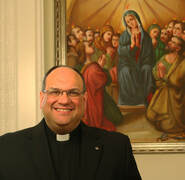
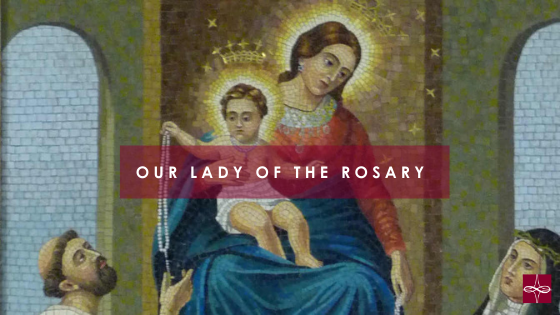


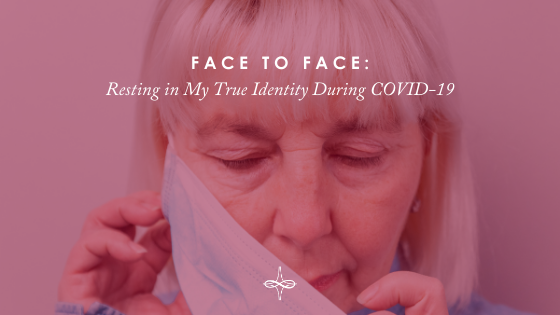

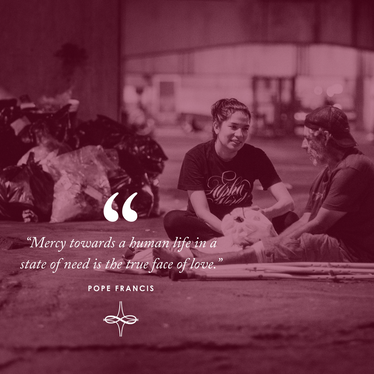
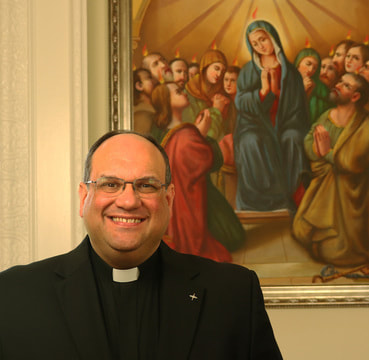
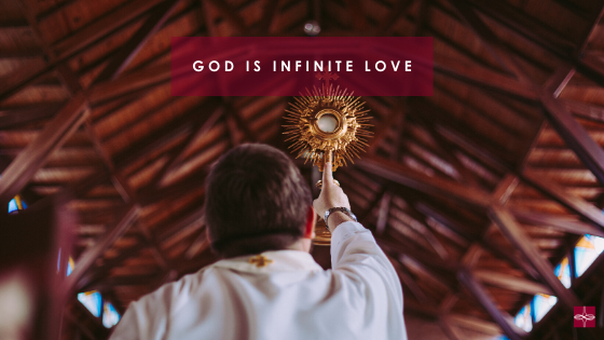

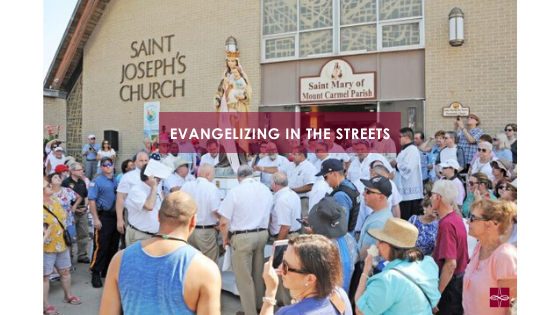
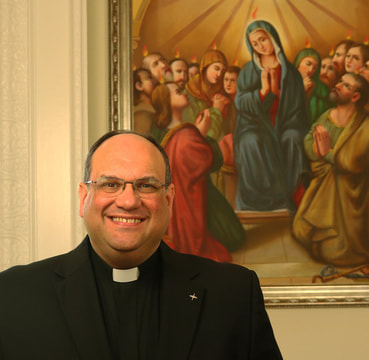
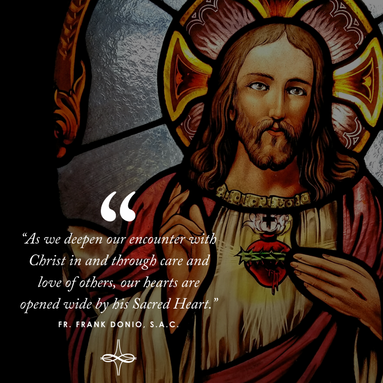
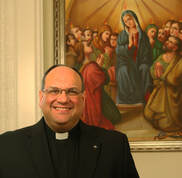
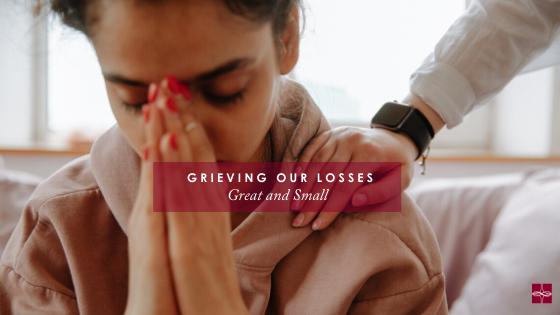

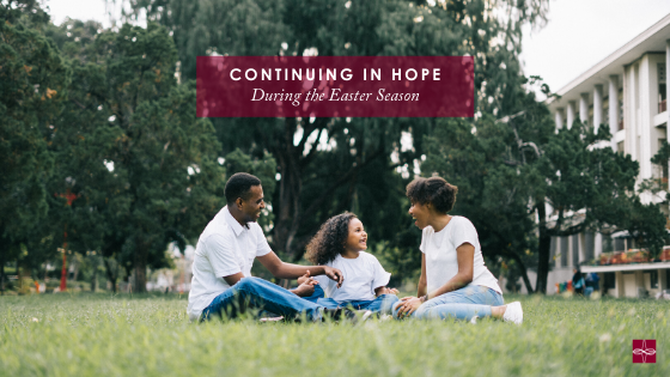



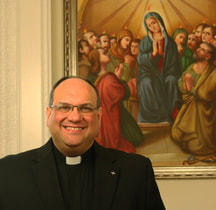
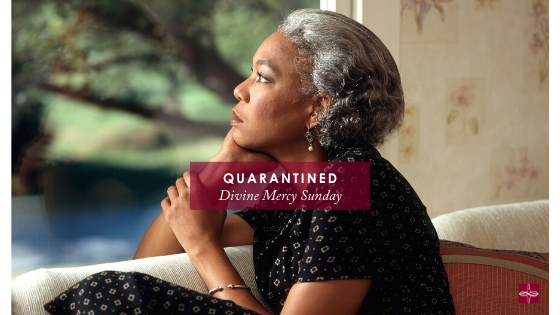

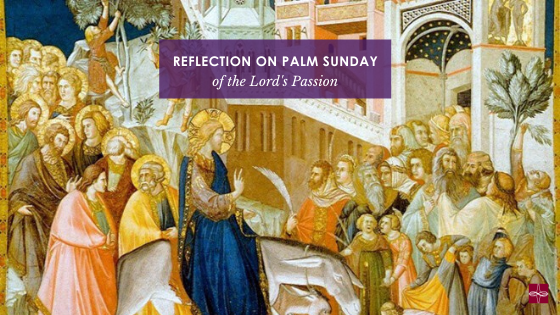
 RSS Feed
RSS Feed